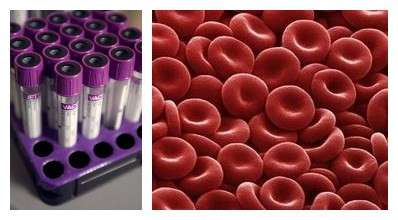
What is MCV in Blood Test?
It is a daily occurrence for us to undergo several laboratory exams when we choose to see our doctor to check our health. These tests are necessary for us to make sure that our organs and bodily functions are working properly. It would also help us in identifying any abnormalities that we would never know unless these tests are taken. The tests, therefore, would help us see if treatment is needed. One of the tests that we take is a blood test. This test is called as mean corpuscular volume, also known as mean cell volume. This test would indicate the blood count, and the let us know the size of the red blood cells produced by the blood.
Our blood is one of the most important components of our body. It contains white blood cells which serve as our antibodies for infections and injuries and the red blood cells which contain hemoglobin, an essential component, for the oxygen in our lungs to be delivered without any glitch. Red blood cells, in particular, should be balanced and produced on the reasonable number.
What Does An Abnormal MCV Level Mean?

It is essential to remember that the level of red blood cells should be standard and just right to perform its function correctly. MCV levels would also let you determine if the patient is anemic or not. But aside from that, it would also let you interpret the reason for the abnormal red blood cells count and how to proceed with the treatment.
There are two abnormalities seen in an MCV blood test. The count could be either too high or too low. A drop on the red blood cell volume is often associated to microcytosis. A low MCV would often result to tiredness and fatigue. These results are because the amount of oxygen delivered to the cells are too low as well. The opposite of this is macrocytosis. When too much red blood cells are generated, they are more prone to break on the tiny capillaries and might cause serious damage.
See another article: What does high RDW mean.
MCV Normal Range (Average LEVEL)
The typical MCV blood test range is measured in femtoliter and has a range of 80 -100 fL. The following table shows the normal range of MCV count:
| Age | fL (femtoliter) |
| newborn | 106 fL |
| 3 months | 95 fL |
| 1 year old | 70 to 86 fL |
| 3 to 6 | 73 – 89 fL |
| 10 to 12 | 77 to 91 fL |
High MCV Means – Causes:
A high MCV may be caused by different things or conditions. Knowing these are essential to avoid developing large red blood cells count.
- Less Vitamin B12 intake
Vitamin B12 is one of the components for correct red blood formation. Reasons for deficiency may include reasons like too much alcohol and poor diet. If after the test, the doctor would identify that you have a little amount of the vitamin in your body, you may be advised to take in supplements to produce the balance.
- Deficiency in folic acid
The vitamin above is also imperative in producing the appropriate amount of red blood cells. If the test would indicate a low level of folic acid, you may be taking prescribed medicine to recover. One of these would be replacement therapy of 5mg folic acid tablet, consumed every day for four months.
- Too much alcohol intake
If a person consumes more alcohol than what is considered acceptable, would damage the storage for the vitamin b12. This would cause the high MCV.
Learn more about High MCH
Low MCV Means – Causes:
Low MCV count is more common than that of a high MCV. It is, therefore, important to know its causes to identify the solution correctly.
- Prolonged blood loss
This situation is commonly found for women who has heavy bleeding for their menstruation. This condition would result to low iron level thus affecting the MCV count as well. If this happens often, a prescribed pills or medicine should be asked from the doctor to remedy the problem.
- Anemia
One of the major components of hemoglobin is iron, so when a person has a very low iron count, the drop in MCV is inevitable. If this is associated with the lab tests, the doctor would quickly advise you of the proper diet to take to increase the iron intake and may let you drink supplements to aid it as well.
- Thalassemia
It is unfortunate that this diagnosis is inherited and could not be avoided once it’s a part of your genes. This condition is where the body itself is not able to produce the correct amount of hemoglobin. If diagnosed with this disease, a transplant may be necessary for treatment.
Learn more about Low MCHC, Low MPV
Red blood cells are essential for us to function normally since it supplies oxygen to us through hemoglobin. Making sure that we have the right amount of it would ensure us that we are healthy and living the right way.

